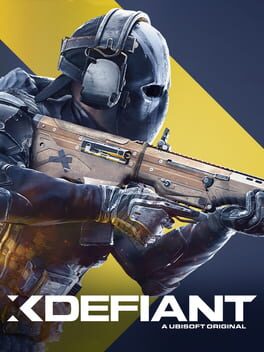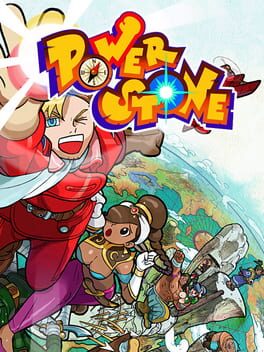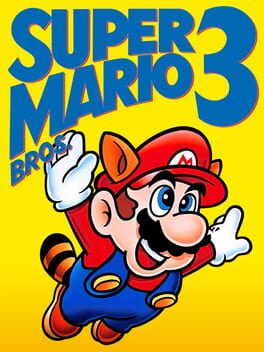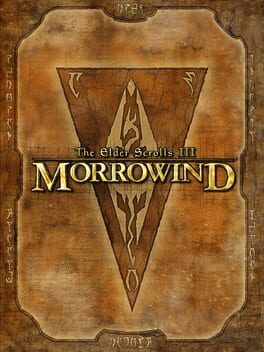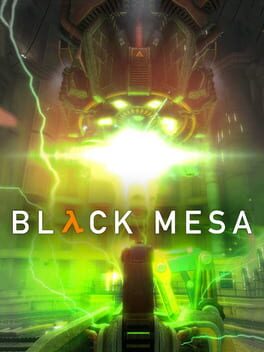Doodstormer
7 reviews liked by Doodstormer
Shenmue
1999
If you love the sacred ritual of videogames- pushing buttons and seeing lights flash before you- there is much to love in Shenmue, a slow, cinematic game, a recreation of the archetypal martial arts revenge thriller, created with the tool kit of the Arcade Daimyo- Yu Suzuki. Every single cutscene, whatever it depicts, from treacherous murder to drinking a can of refreshing coca-cola (dewey condensation implied but not rendered with limited capabilities of the Dreamcast hardware) flies, twirls, zooms and pans with the flair of an Arcade attract screen, a cinematic language born of videogames. Ironically, later videogames would shamefully and shyly try to simulate real cameras, to limit their language to real world possibility, only for the modern drone to make that cinematic language born of videogames suddenly feasible in reality! This style of Drone cinema is currently being explored by directors such as the stalwart and unfairly demeaned misanthrope-auteur Michael Bay, and no doubt videogames bearing cinematic pretensions will soon find themselves reintegrating the attract scene language, wholly ignorant of it's shameful origins (to creators of cinematic videogames) within the medium of videogames, but here we see no such shame, Yu Suzuki uses his full palette.
(One must also herein express appreciation for Hideo Kojima's still under-appreciated masterwork, Metal Gear Solid V, which explores the tension of its concepts of deceit and double-think via a style of camerawork that will whiplash from a simulated second-person camera crew to impossible digital movements, [for example the scene in which Big Boss ascends a Helipad, followed by a furtive 'camera man' {who does not exist either in reality or the fictional reality of the game} only to come face to skull with his shadow archetype and object of hate- Skull Face- and for the camera to suddenly shoot across the Helipad, no longer held by simulated hand, and stabilize on Skull Face's skullface keeping his head dead center while he gives a speech, only to retreat and become a simulated camera man once again as he concludes.] in this way Kojima is playing with the digital heart of videogames and drawing it in compliment to the physical world of cinema, much like Shenmue itself.)
And so it is in this way, with the joy of the videogame, that Shenmue creates cinema, the controls are strange, but responsive, the repetition and iteration intrinsic to games, that which would be elided in film or television (but may find companionship in the brother medium of the videogame- literature) is here represented in full, The Revenge Thriller rendered in a slow burn form that can only be achieved with a videogame- hard skills of controls and input lightly tested, soft skills of memory and prioritization more deeply explored, each day driven by routine, different styles of gameplay with different controls for different contexts- the way a film maker might use different camera lenses and editing techniques for different situations.
Follow the clues, remember the names, ignore your friends, knock together heads, play arcade games, each action delivered with the kinaesthesis of the man who brought us virtua racer, and virtua fighter, the joy of buttons allowing you to inhabit, until you become lost yourself in Ryo Hazuki's quest of revenge.
At last though, the caveat must be declared: The Forklift part. I was sure, as a lover of pushing buttons, of the logistical, of the digital mundane, and above all as a trained operator of forklifts and other MHEs, I would rise above the grousing I see amongst others for this infamously tedious section of game, and see the beauty within. Imagine if you can, my horror when the game forced me to drive with a raised load- creating a dangerously high center of gravity and obstructing Ryo's view, no means to sound the horn to warn pedestrians, no organizational methodology for loading and stowing freight, the code of conduct by which those of my noble profession carry ourselves was being torn to pieces before my eyes! To spend 10 hours performing MHE labour for a mega corporation that does not respect my work, only to come home and pantomime a grotesque mockery of that very same labour was almost too much to bear, and I felt a damp, drizzly November growing in my soul.
Perhaps if I plied a different trade, I would award Shenmue full marks, but one cannot grade a game on 'if' or 'ought' and so I must leave this review on a sour note: it is a passionate masterwork, but it is not passionate about MHE safety...
(One must also herein express appreciation for Hideo Kojima's still under-appreciated masterwork, Metal Gear Solid V, which explores the tension of its concepts of deceit and double-think via a style of camerawork that will whiplash from a simulated second-person camera crew to impossible digital movements, [for example the scene in which Big Boss ascends a Helipad, followed by a furtive 'camera man' {who does not exist either in reality or the fictional reality of the game} only to come face to skull with his shadow archetype and object of hate- Skull Face- and for the camera to suddenly shoot across the Helipad, no longer held by simulated hand, and stabilize on Skull Face's skullface keeping his head dead center while he gives a speech, only to retreat and become a simulated camera man once again as he concludes.] in this way Kojima is playing with the digital heart of videogames and drawing it in compliment to the physical world of cinema, much like Shenmue itself.)
And so it is in this way, with the joy of the videogame, that Shenmue creates cinema, the controls are strange, but responsive, the repetition and iteration intrinsic to games, that which would be elided in film or television (but may find companionship in the brother medium of the videogame- literature) is here represented in full, The Revenge Thriller rendered in a slow burn form that can only be achieved with a videogame- hard skills of controls and input lightly tested, soft skills of memory and prioritization more deeply explored, each day driven by routine, different styles of gameplay with different controls for different contexts- the way a film maker might use different camera lenses and editing techniques for different situations.
Follow the clues, remember the names, ignore your friends, knock together heads, play arcade games, each action delivered with the kinaesthesis of the man who brought us virtua racer, and virtua fighter, the joy of buttons allowing you to inhabit, until you become lost yourself in Ryo Hazuki's quest of revenge.
At last though, the caveat must be declared: The Forklift part. I was sure, as a lover of pushing buttons, of the logistical, of the digital mundane, and above all as a trained operator of forklifts and other MHEs, I would rise above the grousing I see amongst others for this infamously tedious section of game, and see the beauty within. Imagine if you can, my horror when the game forced me to drive with a raised load- creating a dangerously high center of gravity and obstructing Ryo's view, no means to sound the horn to warn pedestrians, no organizational methodology for loading and stowing freight, the code of conduct by which those of my noble profession carry ourselves was being torn to pieces before my eyes! To spend 10 hours performing MHE labour for a mega corporation that does not respect my work, only to come home and pantomime a grotesque mockery of that very same labour was almost too much to bear, and I felt a damp, drizzly November growing in my soul.
Perhaps if I plied a different trade, I would award Shenmue full marks, but one cannot grade a game on 'if' or 'ought' and so I must leave this review on a sour note: it is a passionate masterwork, but it is not passionate about MHE safety...
XDefiant
2024
What possesses developers that they make all these bizarrely toothless PVP 3D shooter games- movement speed is tuned to be middling, Time To Kill is tuned to be middling, weapon handling mechanics are tuned to be middling, all of the fundamental verbs of these games seem deliberately designed to be roughly average, it makes no fucking sense, who wants to play a game like that.
Call of Duty may not be amazing but it has movement and weapon mechanics that can induce ADHD in a fully grown adult with no prior symptoms, Counter-Strike has those wild ass recoil systems and grenade trajectories, Halo was deliberately made to be absurdly sluggish- Tribes absurdly fast, Gears of War had cover platforming, Quake- Bunnyhopping, etc, etc. These games, whether trying to cater to a mass audience or freaks all had real tangible decision making in the move-shoot-kill fundamentals that set them all apart from each other and it feels like every PVP shooter I try now deliberately avoids any kind of distinction in core mechanics, preferring them to be roughly universal and relying on the various hero gimmicks or structural gimmicks layered on top to distinguish themselves. It's no way to make a fun shooter for any kind of audience.
Call of Duty may not be amazing but it has movement and weapon mechanics that can induce ADHD in a fully grown adult with no prior symptoms, Counter-Strike has those wild ass recoil systems and grenade trajectories, Halo was deliberately made to be absurdly sluggish- Tribes absurdly fast, Gears of War had cover platforming, Quake- Bunnyhopping, etc, etc. These games, whether trying to cater to a mass audience or freaks all had real tangible decision making in the move-shoot-kill fundamentals that set them all apart from each other and it feels like every PVP shooter I try now deliberately avoids any kind of distinction in core mechanics, preferring them to be roughly universal and relying on the various hero gimmicks or structural gimmicks layered on top to distinguish themselves. It's no way to make a fun shooter for any kind of audience.
Power Stone
1999
One of the many, many, many, MANY brilliant yet abandoned IPs Capcom is sitting on and doing nothing with because it doesn't start with "Street" or "Resident."
This is about the closest thing I can imagine to what a 3D Smash Bros. would be. The fighting revolves around battling your opponent in small 3D arenas packed with items and hazards over control of 3 Power Stones that appear on the stage (among other crazy items like swords, bazookas, bombs, etc.) which cause your character to transform into a special powered up version of themselves upon collection of all 3. Also like smash, all items can be turned off, even the Power Stones, and the fighting itself is robust enough that the game is still fun without them. This IS Capcom after all, they made some of the best fighting and action games of all time.
It's alot more fun with items though, running around the stages and chucking boxes and tables and chairs at your opponent to steal their stones is a blast. A Power Stone 3 sure would be nice.
This is about the closest thing I can imagine to what a 3D Smash Bros. would be. The fighting revolves around battling your opponent in small 3D arenas packed with items and hazards over control of 3 Power Stones that appear on the stage (among other crazy items like swords, bazookas, bombs, etc.) which cause your character to transform into a special powered up version of themselves upon collection of all 3. Also like smash, all items can be turned off, even the Power Stones, and the fighting itself is robust enough that the game is still fun without them. This IS Capcom after all, they made some of the best fighting and action games of all time.
It's alot more fun with items though, running around the stages and chucking boxes and tables and chairs at your opponent to steal their stones is a blast. A Power Stone 3 sure would be nice.
Super Mario Bros. 3
1988
Dragon's Dogma II
2024
In that primordial placeless origin, through the mist-veil of time, since man first airbrushed Merlin smoking a pipe on the side of a van, there, you can feel it in the noosphere, a moon-lit dream, The Dream, a call in the heart of the human soul. Some have seen some small part of this dream- The Legend of Zelda, The Elder Scrolls, Ultima, Dark Souls, Adventure, Dragon Quest, King's Field, Wizardry, among innumerable others, nameless here forevermore, all have failed to reach The Dream. Perhaps cruel circumstance chained them to Earthly bond, perhaps cowardice stayed their hand, perhaps they lacked the naivety and earnestness necessary to behold a waking dream. Whatever their individual situation, the results have always been, like Lion of Gripsholm Castle, a mutant, an aberration, at best a passing resemblance. Dragon's Dogma is The Dream, forged in the furnace of the heart, it is not visually plain- it is clean, it is not halfbaked- it is too goodly to exist totally in a world half-evil, it achieves the promise of videogames, and proves that creative endeavour above all else is the greatest goal humanity can strive for. it is the twinkle in the eye of Merlin smoking a pipe airbrushed on the side of a van.
There is a tendency when dunking on Bethesda games, to criticize them from the lens of their failure to be like other RPGs- The Witcher 3 is more cinematic and refined, Baldur's Gate 3 more densely written, Fallout 1 more actually good, so on and so forth. The truth is that Bethesda games suck much more tragically and pathetically on their own terms than in comparison to other games, Todd Howard who began his career with monumental works of termite art in the end forsook the dream of the Bethesda game. The dream of the bethesda game was always to create a holodeck, a simulation for you to inhabit totally- 'Why the hell would I pick up a spoon?' someone asks, perfectly reasonably expecting game mechanics to exist for gameplay reasons, but it's just that you can pick up spoons because it's something a person is able to do. Personally I think this dream is perhaps misguided, but nevertheless they pursued it, which is admirable in its own right.
"With this character's death, the thread of prophecy is severed. Restore a saved game to restore the weave of fate, or persist in the doomed world you have created."
The message you receive upon killing a crucial NPC points towards the commitment towards the holodeck dream, it will continue on even if you totally fuck up, and indeed there are generally ways around the death of those crucial NPCs provided you understand the simulation.
And fear of people misunderstanding the simulation is what drove bethesda to make many crucial NPCs invulnerable in Oblivion, you never know when you're actually in a simulation or not anymore, even as the NPC AI had become much more sophisticated with schedules, likes, dislikes and habits, the places you could engage shrunk, and then even the ambitious NPC AI in subsequent games was stripped back for ever more presentable and simpler systems, to the point of Starfield doing deliberately what Morrowind had done out of technical limitations 20 years prior: 24/7 vendor NPCs with no schedules, likes or dislikes, who exist only in service of the player.
But maybe most telling of all, was that in Fallout 4 they decided that the player need a good reason to pick up a spoon.
"With this character's death, the thread of prophecy is severed. Restore a saved game to restore the weave of fate, or persist in the doomed world you have created."
The message you receive upon killing a crucial NPC points towards the commitment towards the holodeck dream, it will continue on even if you totally fuck up, and indeed there are generally ways around the death of those crucial NPCs provided you understand the simulation.
And fear of people misunderstanding the simulation is what drove bethesda to make many crucial NPCs invulnerable in Oblivion, you never know when you're actually in a simulation or not anymore, even as the NPC AI had become much more sophisticated with schedules, likes, dislikes and habits, the places you could engage shrunk, and then even the ambitious NPC AI in subsequent games was stripped back for ever more presentable and simpler systems, to the point of Starfield doing deliberately what Morrowind had done out of technical limitations 20 years prior: 24/7 vendor NPCs with no schedules, likes or dislikes, who exist only in service of the player.
But maybe most telling of all, was that in Fallout 4 they decided that the player need a good reason to pick up a spoon.
Black Mesa
2020
they 'fixed' the MP5 and shotgun so instead of needing to rely on a whole arsenal of explosives, traps and weirdo guns you can just handle every single fight with two guns
they 'fixed' the HECU marines so instead of erratic freaks they just kinda stand around and impose a health tax if you look around a corner
they 'fixed' xen by making it look like it was trending on art station and replacing all the weird cool levels with Half-Life 2 puzzles for some godforsaken reason
they 'fixed' the HECU marines so instead of erratic freaks they just kinda stand around and impose a health tax if you look around a corner
they 'fixed' xen by making it look like it was trending on art station and replacing all the weird cool levels with Half-Life 2 puzzles for some godforsaken reason

